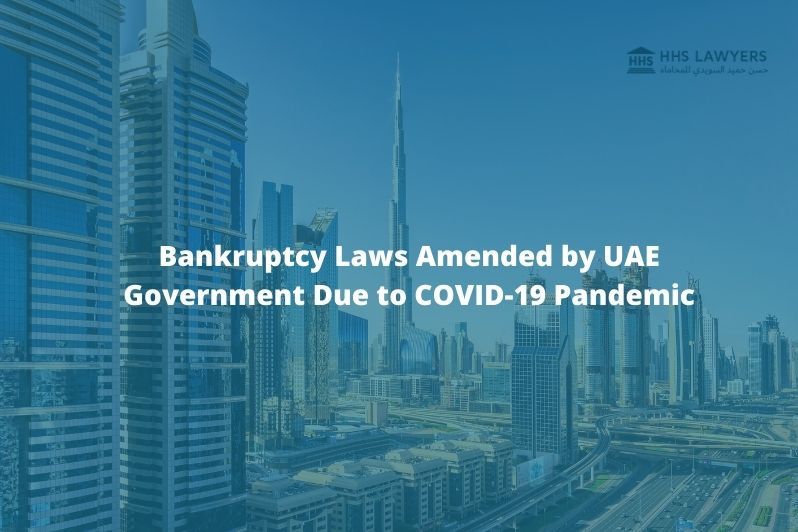The decision of UAE in amending the laws on bankruptcy is seen as a crucial step in boosting the confidence of investors in the country, stated CEO and president of Chamber of Commerce of Dubai, Hamad Buamim. The amendments were announced just recently by the UAE Cabinet to enable residents and businesses in overcoming their credit challenges due to the emergency situations caused by the COVID-19 pandemic.
The decision to amending the bankruptcy law of the country will make sure business continues and thrives in UAE and investors remain confident and competitive while operating in UAE. The move complements the UAE government’s economic stimulus package with Dhs500 million or USD$136 million as the latest, expanding efforts in helping the business environment overcome the challenges that are created by the spread of coronavirus.
Dubai announced the latest stimulate package just last Sunday, which is aimed at supporting businesses that have been badly hit by the coronavirus. The updated law is reflective of the proactiveness of the UAE Cabinet in providing a response to the country’s economy and its changing needs.
Under the original legislation, businesses have the obligation in filing for bankruptcy as soon as they are insolvent. If they continue to trade, they will be imposed a fine or penalty. The amendment is a reaction to UAE’s business landscape that is suffering from the current pandemic. Changes to the bankruptcy law will serve as the vital lifeline for those that are struggling with the pandemic’s financial impact. According to experts, they offer companies protection.
New bankruptcy policies
Under the new bankruptcy policies, a business, during an emergency situation, may defer the application for liquidation and can seek up to one year or twelve months in reaching a settlement with all of its creditors. In this period, the funds of the business are protected. The creditors will not be able to interfere with funds which are required in keeping the business operations afloat.
According to legal and financial experts in the country, this will suffice in protecting businesses during situations that can impinge on investment and trade. The amendments recently introduced will also ensure the obligations of debtors are fulfilled and mitigate loss from defaults, enabling also creditors in securing their rights. The new policies stipulate that a debtor will be exempt from initiating the process of bankruptcy declaration and company liquidation in UAE. The changes will provide businesses possibilities in looking for new financing to secure liquidity which is most definitely a requirement during times of emergencies.
Bankruptcy and liquidation in UAE
For the businesses that are set in undergoing company liquidation in UAE, it’s possible for the debtors or the creditors themselves to apply for the full bankruptcy procedures. Local courts can entitle a debtor with the supervision of a company liquidator in UAE that is court appointed in continuing its business until full bankruptcy has been declared. This is for instances wherein selling the business is an ongoing concern.
With the bankruptcy, the company liquidator in UAE supervised by the local courts will commence the sale of company assets and liquidate the business through a quick process in order to settle liabilities from creditors and pay the cost for liquidating.
During bankruptcy and liquidation proceedings, the scheduled debts will be due immediately. The courts will also provide company liquidator power in terminating contracts in order to help with the company liquidation. UAE bankruptcy law doesn’t provide specifics for suspension of the judicial proceedings which are against debtors or a business during a liquidation process.
Impact of liquidation and bankruptcy proceedings in UAE
- The UAE has existing laws that provide specific expenses and debts to be prioritized with other debts subject to the security of being paid prior to all other preferential debts.
- The owner of a business will be prevented from being involved directly with the business management, from the application of further debts or the granting of security over assets during the proceedings. It’s the company liquidator in UAE that will possess absolute power in handling the liquidation process and the business will be under the courts’ supervision.
- The court proceedings are to be suspended as well as execution proceedings except for debts that are secured through a mortgage or seen as preferential debts. For companies that are under the restructuring process or preventive composition process, these will include proceedings for the bouncing of cheques. Any creditor of a bounced cheque will be receiving a settlement as part of a liquidation similar to all other creditors.
In the UAE, bankruptcy and liquidation policies are constantly changed. What HHS Lawyers team of seasoned company liquidators in UAE can provide is full guidance on the local regulations, including assessing the best possible route for your business in dealing with bankruptcy and liquidation. Call us today!

